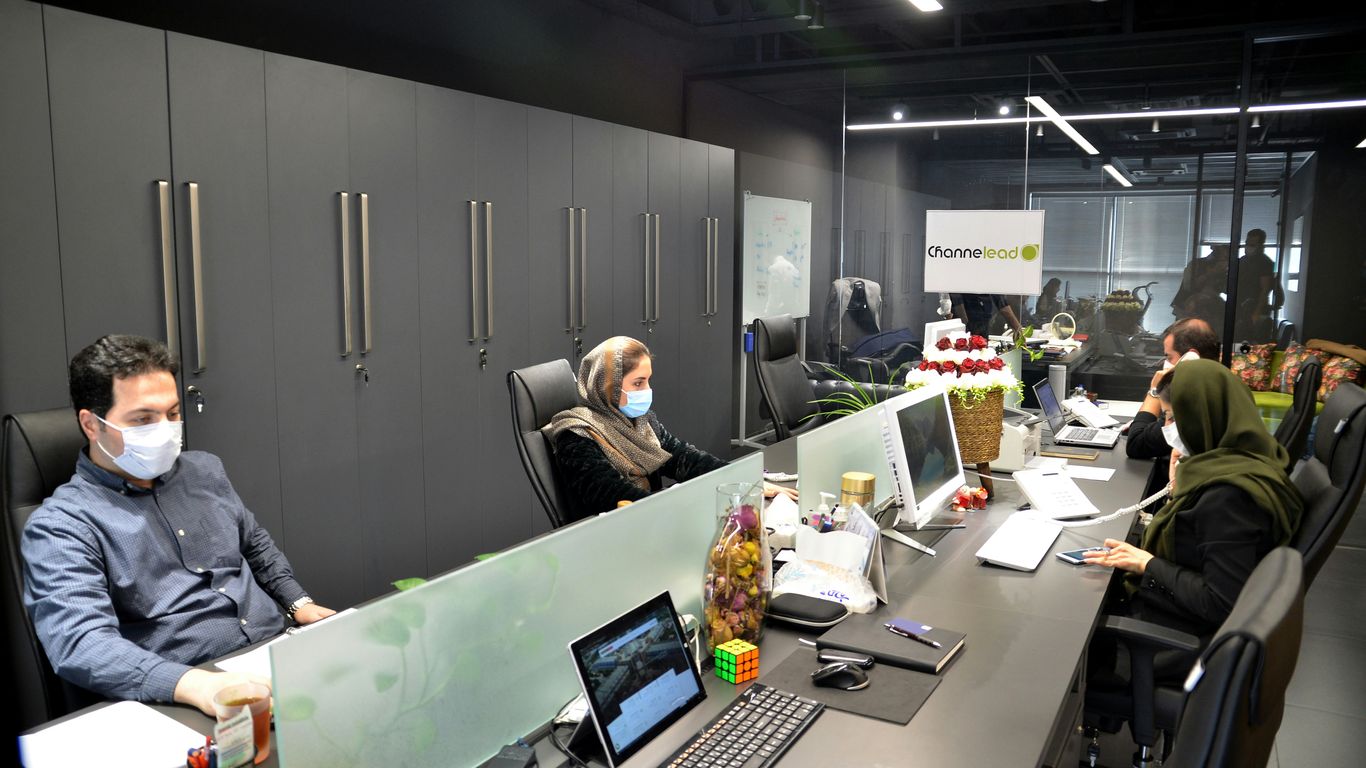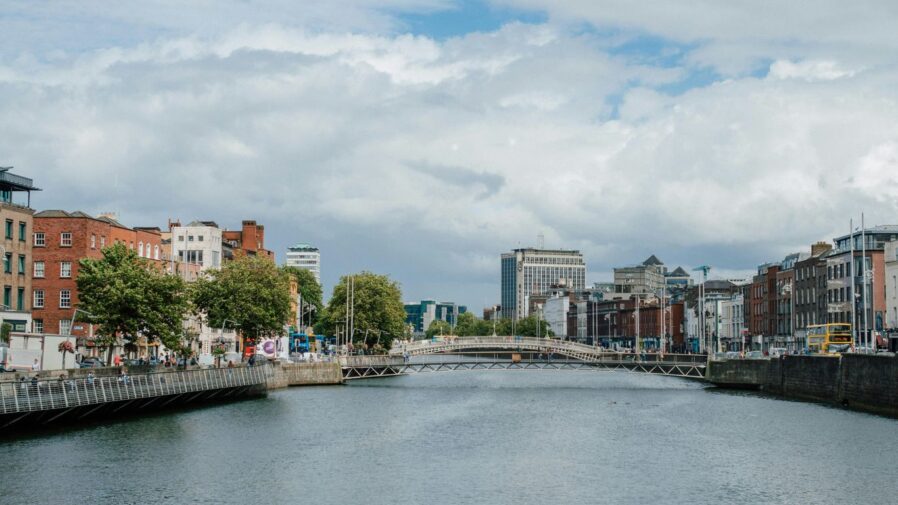Thinking about a move to Ireland for work? It’s a big decision, and honestly, it can feel a bit overwhelming trying to figure it all out. From understanding the job scene to sorting out where you’ll live and how to manage your money, there’s a lot to consider. This guide aims to break down the process, offering practical advice for anyone looking to build a career in Ireland, especially those interested in opportunities related to BD Ireland.
Key Takeaways
- Ireland’s job market is strong, particularly in tech and pharma, with Dublin being a major hub.
- Various visa options exist, with the Critical Skills Employment Permit being a key pathway for professionals.
- Securing accommodation and opening a bank account are important first steps for settling in.
- Networking and utilizing educational opportunities can significantly boost career growth in Ireland.
- Careful financial planning, including understanding taxation and money transfer services, is vital for a smooth transition.
Understanding the Irish Job Market

Overview of Key Industries in Ireland
Ireland’s economy is really humming, and there are a lot of different sectors looking for people. Dublin, for instance, is a major spot for big tech companies like Google and Microsoft, so if you’re in tech, that’s definitely a place to look. But it’s not just tech; the pharmaceutical and biomedical fields are also doing really well, with companies like Pfizer having a big presence. The financial services sector, especially in Dublin’s International Financial Services Centre (IFSC), also offers a good number of jobs.
It’s good to know what’s in demand. Here’s a quick look at some of the main areas:
- Technology: Software development, data analysis, IT support.
- Pharmaceuticals & Life Sciences: Research, manufacturing, quality control.
- Financial Services: Banking, insurance, accounting.
- Manufacturing: Advanced manufacturing, engineering.
- Healthcare: Nursing, medical professionals, allied health.
The job market here is quite dynamic, with a strong emphasis on skilled professionals, particularly in STEM fields. It’s worth researching specific companies within these industries that align with your career goals.
Effective Job Search Strategies for BD Professionals
Finding a job in Ireland involves using a few different approaches. You can’t just rely on one method. Websites like LinkedIn, Indeed, and IrishJobs.ie are popular places to find job listings across various industries. Don’t forget about recruitment agencies either; companies like Morgan McKinley and CPL Recruitment can be really helpful in connecting you with opportunities and guiding you through the application process. Building connections is also a big deal. Getting involved with professional groups or industry events can open doors to jobs that aren’t always advertised widely.
Here are some tips to get you started:
- Online Job Boards: Regularly check major Irish job sites and LinkedIn.
- Recruitment Agencies: Register with agencies specializing in your field.
- Company Websites: Look directly at the careers pages of companies you’re interested in.
- Networking: Attend industry events and connect with people on LinkedIn.
Navigating the Tech and Pharmaceutical Sectors
When you’re looking at the tech and pharma industries in Ireland, it’s helpful to know what kind of roles are common and what the typical salary ranges look like. These sectors are known for offering competitive compensation and opportunities for growth. For example, roles like Data Analysts and Software Engineers are in high demand.
Here’s a general idea of what you might expect for some common roles:
| Job Title | Average Salary Range (EUR) |
|---|---|
| Data Analyst | €29,000 – €52,000 |
| Software Engineer | €33,000 – €72,000 |
| Marketing Executive | €25,000 – €38,000 |
| Project Manager | €35,000 – €63,000 |
| Software Developer | €30,000 – €67,000 |
| Quality Control Analyst | €33,000 – €50,000 |
| Data Scientist | €29,000 – €63,000 |
Note: Salary data is approximate and can vary based on experience, location, and specific company.
Visa Pathways for Professionals

Moving to Ireland for work means you’ll need the right paperwork. It’s not the most exciting part of the process, but getting it right is pretty important. Let’s break down some of the common ways professionals can get a visa to work in Ireland.
Exploring Work Visa Options
If you’ve landed a job offer from an Irish company, this is likely your main route. The Irish government has specific permits for people coming from outside the European Economic Area (EEA) to work there. The type of permit you need often depends on the job itself and your qualifications.
- General Employment Permit: This is for jobs that don’t qualify for the Critical Skills list. You’ll need a job offer from an Irish employer who has already tried to find a suitable candidate from the EEA.
- Intra-Company Transfer: If you work for a multinational company and are being transferred to the Irish branch, this permit might apply.
- Other Specific Permits: There are also permits for things like sports and arts, or for researchers.
The key thing with any work permit is that you generally need a confirmed job offer from an Irish employer before you can even start the application process. They often have to show they couldn’t find someone locally first.
The Critical Skills Employment Permit
This permit is a big deal for certain professions. Ireland actively seeks skilled workers in areas where there’s a shortage. If your job is on the Critical Skills Occupations List, you get some advantages.
Here’s a look at some sectors that often feature on the list:
| Sector |
|---|
| Information and Communications Technology (ICT) |
| Engineering |
| Health Sciences |
| Finance |
| Construction |
If you get this permit, it can make things easier down the line, like applying for residency. It’s designed to attract people with skills that Ireland needs.
Family Reunification Visa Considerations
If you’re moving to Ireland and have a spouse, partner, or dependent children, you’ll want to know about family reunification. This allows family members to join you if you have a legal right to reside in Ireland.
- Eligibility: The person already in Ireland needs to be a citizen or have a certain type of long-term residency status.
- Financial Requirements: You’ll usually need to show you can support your family without relying on state assistance.
- Relationship Proof: You’ll need to provide documents proving your relationship, like marriage certificates or birth certificates.
It’s a process that requires careful documentation, so make sure you check the latest requirements from the Irish immigration authorities well in advance.
Relocation and Settling In
So, you’ve got your visa sorted and you’re ready to pack your bags for Ireland. That’s a huge step! But before you can really start enjoying the Emerald Isle, there are a few practical things you need to sort out. It’s not the most exciting part, but getting these sorted makes everything else so much smoother.
Finding Accommodation in Ireland
First things first, where are you going to live? Ireland’s housing market can be a bit of a puzzle, especially in popular cities like Dublin. You’ll want to figure out if you need a temporary spot when you first arrive or if you’re ready to commit to a longer-term rental. Serviced apartments or even hostels can be good for the first few weeks while you get your bearings. Websites like Daft.ie are pretty much the go-to for rental listings, but be prepared for a lot of competition, especially for decent places.
Here’s a quick look at what to expect:
- Temporary Stays: Hostels, Airbnb, serviced apartments.
- Long-Term Rentals: Look at property websites (like Daft.ie), local letting agencies, and even university accommodation boards if you’re a student.
- Buying Property: This is a bigger step, usually for those staying long-term. You’ll need to work with estate agents and understand the mortgage process.
Remember to factor in utility bills and local property taxes when budgeting for your accommodation. It’s easy to forget these extras!
Opening a Bank Account and Financial Management
Getting your finances in order is another big one. You’ll need to open an Irish bank account to manage your money easily. Most banks will ask for proof of identity (like your passport) and proof of address. This can be tricky at first if you don’t have a utility bill yet, so sometimes a letter from your employer or a rental agreement can work.
Some of the main banks you’ll find are:
- Bank of Ireland
- Allied Irish Banks (AIB)
- Permanent TSB
- Ulster Bank (though their presence is changing)
When choosing a bank, it’s worth comparing their services, account fees, and ATM availability. Also, think about how you’ll transfer money from your home country. Services like Wise (formerly TransferWise) or Revolut are popular for their competitive rates and low fees compared to traditional banks.
Understanding Legal Rights and Responsibilities
Living in Ireland means you have certain legal rights and responsibilities. It’s really important to understand your visa conditions and make sure you stick to them. Keep an eye on your visa’s expiry date and know the process for renewing it if you plan to stay longer. You also need to inform the relevant authorities if your personal circumstances change, like your address or marital status. Ignoring these rules can lead to serious trouble, like fines or even being asked to leave the country. Staying informed is key to a smooth transition.
Career Growth and Development
So, you’ve landed a gig with BD in Ireland. That’s awesome! But what happens after you get settled? It’s not just about the job itself, right? You want to grow, learn new things, and maybe even climb the ladder. Ireland’s got some pretty good options for that, especially if you’re looking to build on your skills or even switch gears a bit.
Leveraging Educational Opportunities
Ireland is a hub for learning, and BD often supports employees who want to keep their education going. Think about it: you could be working at BD while also taking classes at one of the many universities or colleges. This isn’t just about getting another piece of paper; it’s about picking up skills that make you better at your current job or prepare you for something new down the line. Maybe you want to get a master’s degree in a business-related field, or perhaps a certification in a specific technology that BD uses. It really depends on what you’re aiming for.
- Upskilling Courses: Look for short courses or workshops that target specific skills relevant to your role or future aspirations. These can be anything from project management to advanced data analysis.
- Further Education: Consider pursuing a part-time master’s degree or a postgraduate diploma. Many Irish universities offer flexible programs designed for working professionals.
- Professional Certifications: Identify industry-recognized certifications that can boost your credibility and open doors. This could be in areas like IT, finance, or healthcare.
It’s a smart move to talk to your manager or HR department about what educational support BD might offer. Sometimes they have tuition reimbursement programs or partnerships with local institutions.
Networking for Career Advancement
Honestly, who you know can be just as important as what you know. Building connections in Ireland, both inside and outside of BD, is a big deal for your career. It’s not just about finding your next job; it’s about learning from others, getting different perspectives, and finding mentors.
- Internal Networking: Make an effort to connect with colleagues in different departments. Attend company events, join employee resource groups, and don’t be afraid to reach out for informational interviews.
- Industry Events: Keep an eye out for conferences, seminars, and meetups related to your field in Ireland. These are prime spots to meet people from other companies and learn about industry trends.
- Professional Organizations: Joining relevant professional bodies can give you access to networking events, resources, and career development opportunities.
Post-Study Work Opportunities
This section is particularly relevant if you’re coming to Ireland as a student or plan to pursue further education while working. Ireland has specific pathways for graduates to stay and work. If you complete a degree in Ireland, you might be eligible for a Third Level Graduate Programme visa, which allows you to look for work for a period after graduation. This can be a great way to get your foot in the door with companies like BD if you haven’t secured a role before finishing your studies. It gives you time to explore the job market and apply for positions that fit your qualifications and career goals.
Financial Planning for Your Move
Okay, so you’re thinking about moving to Ireland. That’s exciting! But before you start packing, let’s talk about the money side of things. It’s not the most glamorous part, I know, but getting your finances sorted early can save you a lot of headaches down the road.
Managing Finances in Ireland
First things first, you’ll need to get a handle on how money works in Ireland. This means opening a bank account. You’ll typically need your passport, proof of address (like a utility bill or a rental agreement), and some sort of confirmation of employment or study. Big banks like Bank of Ireland, AIB, and Ulster Bank are common choices, but it’s worth comparing their services and fees to see what fits you best. Think about what you’ll need – is it easy access to ATMs, good online banking, or maybe specific types of accounts?
Setting up a budget is also a smart move. Knowing your expected income and expenses will help you avoid overspending and make sure you can cover your essentials, like rent and food, plus a little extra for fun.
Money Transfer Services
If you need to send money back home or have family sending you funds, you’ll want to look into money transfer services. There are quite a few options out there, and they can vary a lot in terms of fees and exchange rates. Some services are better for larger amounts, while others are more cost-effective for smaller, regular transfers. It’s a good idea to do a bit of research to find a service that offers competitive rates and quick transfers. For instance, if you’re looking to send money to Bangladesh, services like ACE Money Transfer are often mentioned for their competitive rates and low fees, making it easier to manage your finances across borders.
Understanding the Taxation System
Ireland has its own tax system, and you’ll need to understand how it works. This includes income tax, which is usually deducted directly from your salary by your employer through a system called PAYE (Pay As You Earn). You’ll also need to be aware of other potential taxes, like Universal Social Charge (USC) and possibly Local Property Tax if you end up buying property. Getting a handle on these will help you understand your net income and plan accordingly. It might seem a bit daunting at first, but most employers and government resources can provide information to help you figure it out.
Here’s a quick look at some common tax-related points:
- Income Tax: Based on your earnings, with different tax rates for different income bands.
- Universal Social Charge (USC): An additional tax on income, with different rates and thresholds.
- PRSI (Pay Related Social Insurance): Contributions that go towards social welfare benefits like pensions and jobseeker’s benefit.
It’s always a good idea to check the official Irish Tax and Customs website for the most up-to-date information on tax rates and regulations. Planning your finances properly means understanding these systems so you can make informed decisions about your money as you settle into your new life in Ireland.
Life in Ireland: Cities and Lifestyle
Choosing the Ideal City for Your Career
Ireland offers a variety of cities, each with its own vibe and job market. Dublin, the capital, is a major economic center, especially strong in tech and finance. It’s got a lot going on, but it can also be quite busy and expensive. If you’re looking for a place with a good job market but maybe a bit more breathing room, Cork could be a good fit. It’s often seen as more affordable than Dublin while still having plenty of opportunities and a rich cultural scene. Galway, on the other hand, is known for its artistic community and a growing tech sector, making it attractive for creative types and those in the tech industry. When you’re picking a city, think about where the jobs are that you want, how much things cost, and what kind of lifestyle you’re after. It really makes a difference to your overall experience.
Cost of Living Comparisons
When you’re planning your move, figuring out the cost of living is a big deal. Here’s a quick look at how some major cities stack up:
| City | Monthly Rent (1-bed apt) | Groceries (monthly) | Public Transport (monthly) |
|---|---|---|---|
| Dublin | €1,800 – €2,200 | €350 – €450 | €100 – €130 |
| Cork | €1,400 – €1,700 | €300 – €400 | €80 – €110 |
| Galway | €1,300 – €1,600 | €300 – €400 | €70 – €100 |
Keep in mind these are just estimates, and your actual spending will depend on your personal habits and choices. It’s always a good idea to do some specific research for the area you’re considering.
Cultural Integration and Community Support
Getting settled in a new country involves more than just finding a place to live and a job. Ireland is known for its friendly people, and you’ll find that most locals are happy to help you out. Many universities and companies also have programs to help new arrivals adjust. You might find things like welcome events or even buddy systems to help you connect with others.
Ireland’s compact size means you can easily explore different parts of the country, from historic sites to beautiful coastlines. The pub culture is a big part of social life, offering a relaxed way to meet people and enjoy live music. It’s a blend of modern city life and traditional charm that many find very appealing.
Getting involved in local activities or joining clubs related to your interests can really help you feel at home. Whether it’s a sports club, a book group, or a language exchange, these connections make a big difference. If you’re looking for support with your career or business ideas, there are also resources available, like the support offered to entrepreneurs through programs that can help you get started. Find business support.
Wrapping Up Your Irish Career Journey
So, that’s a look at what it’s like to explore job opportunities in Ireland. It’s a big move, for sure, and there’s a lot to think about, from getting your paperwork sorted to finding a place to live and understanding how things work financially. But with a bit of planning and knowing where to look for information, it’s totally doable. Ireland’s job market is pretty active, especially in places like Dublin, and there are resources out there to help you find your way. Just remember to do your homework, be prepared, and you’ll be well on your way to starting your new chapter.














